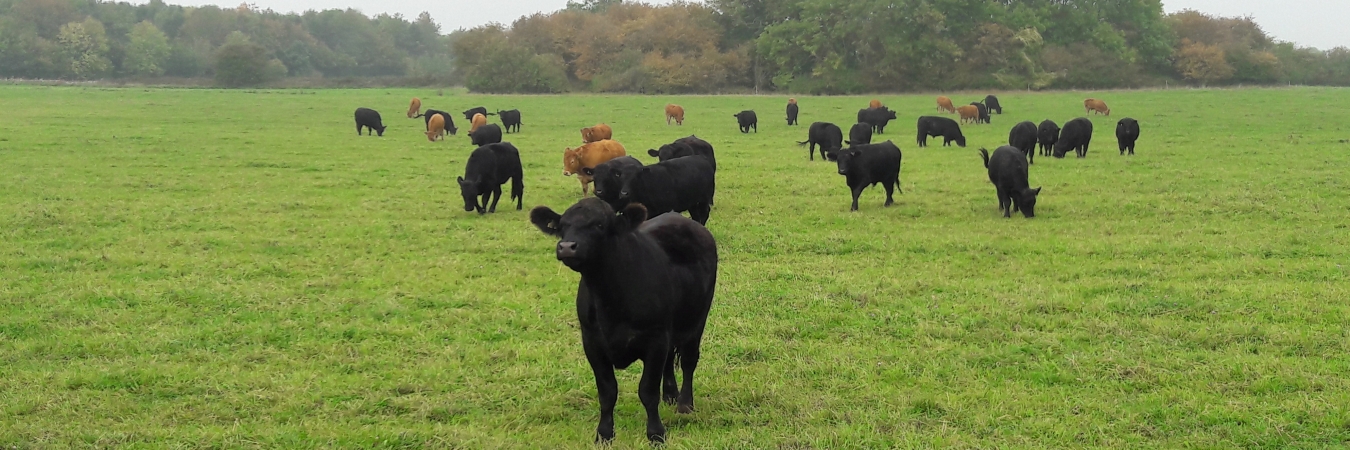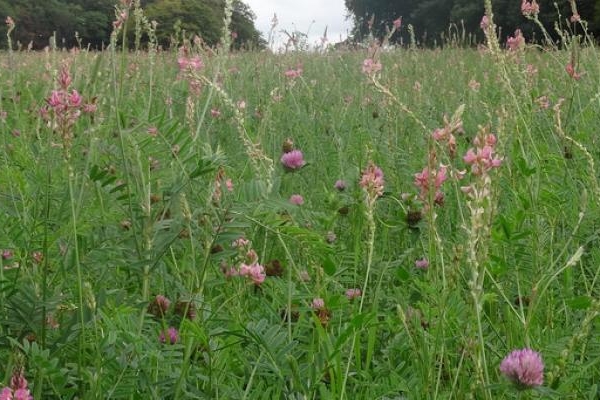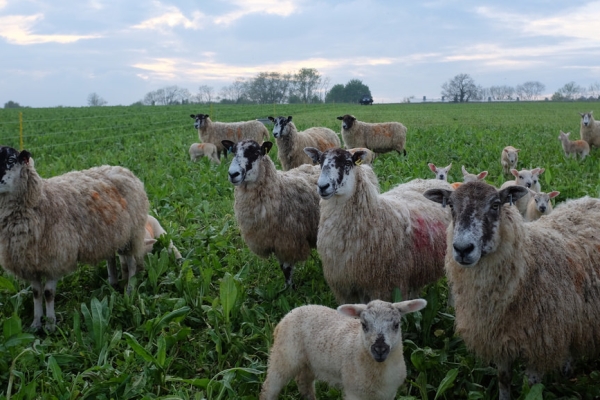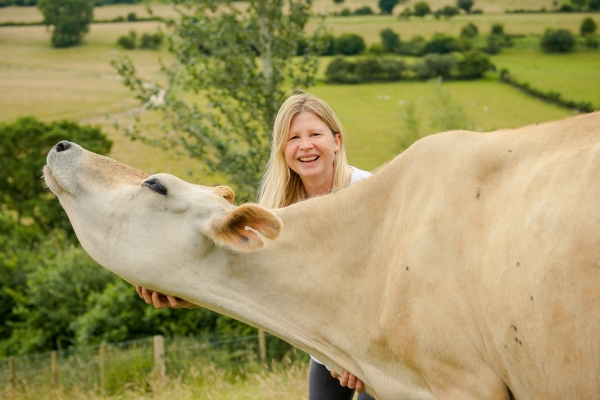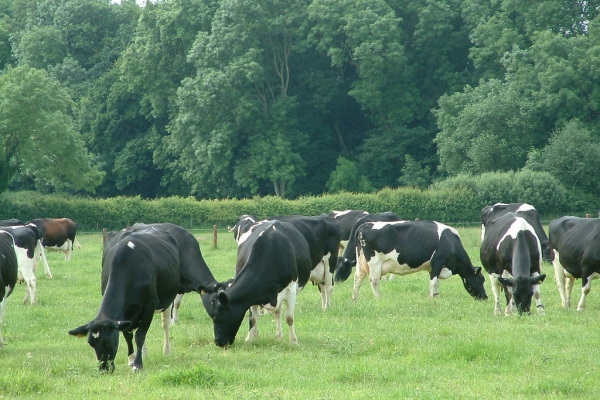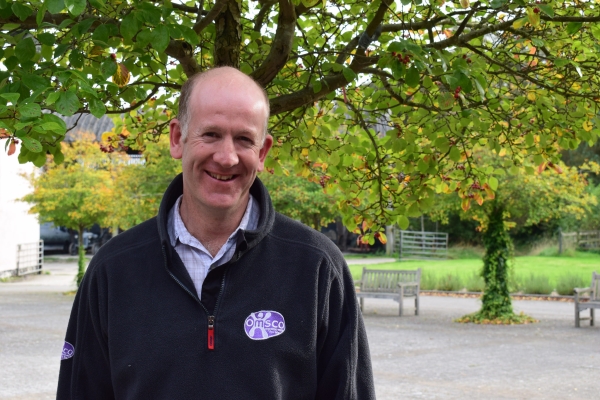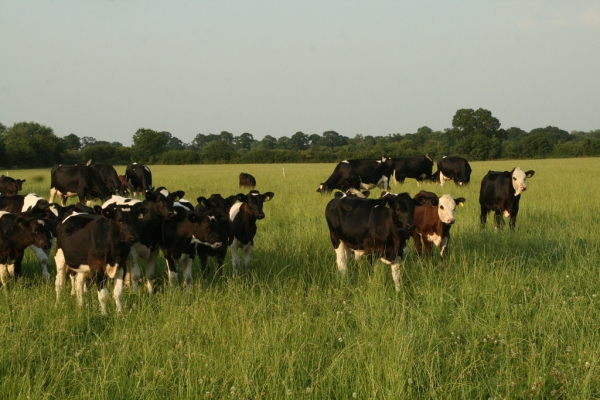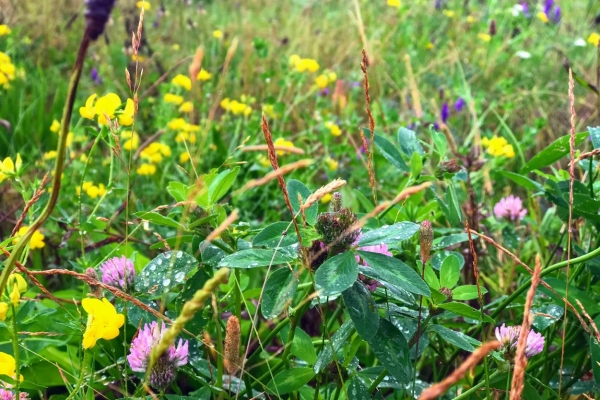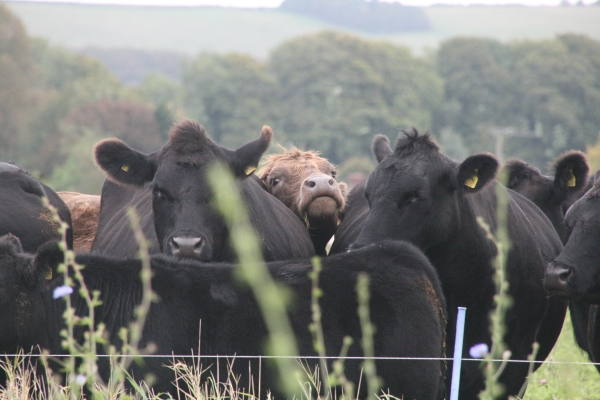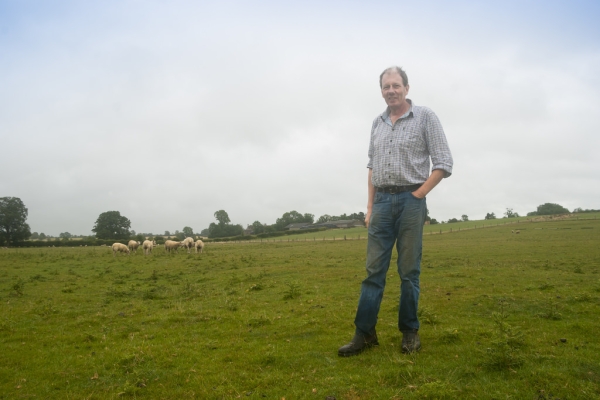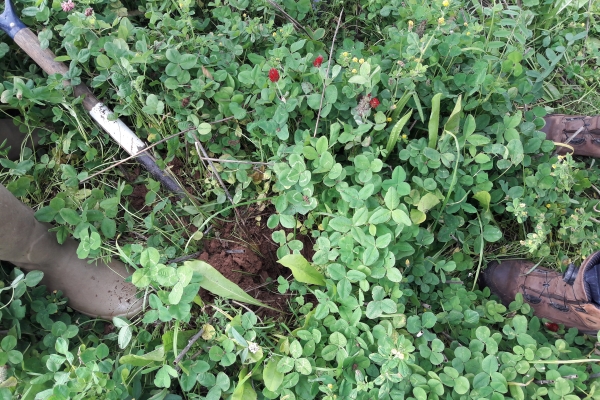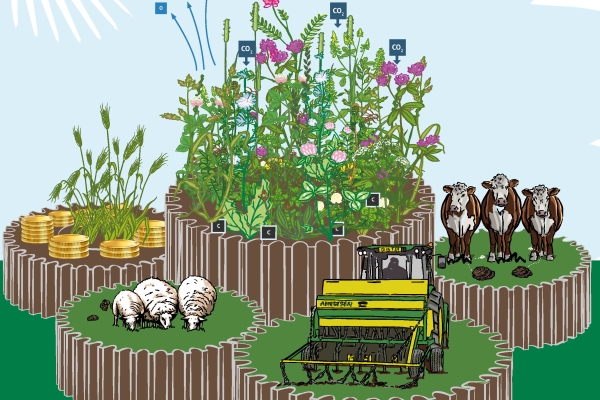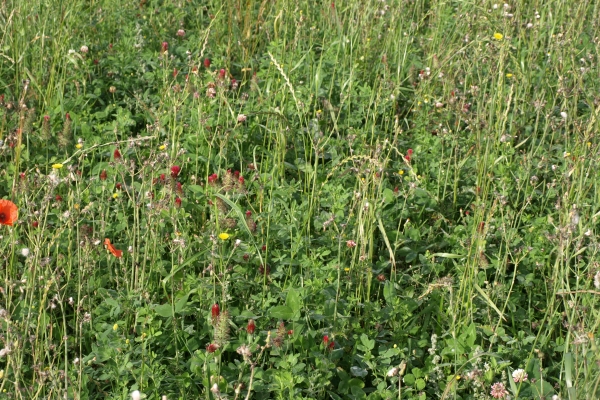Livestock on diverse leys: a return to the past for a promising future
ORC Bulletin No. 126 - Autumn 2018
Resource explained
Organic farms have long used grass and herb leys in arable rotations to help restore soil structure and fertility after cropping. The main drawback of a ley for an arable farmer is the perceived loss of productivity and lack of income from a crop. For organic farmers, the return in terms of soil fertility and capacity for weed control outweighs this, but for other farmers it is seen as cheaper and easier to return nutrients using organic or mineral fertilisers and to control weeds with herbicides. Moving towards a more diverse mix of grasses and herbs and using the ley to keep livestock (getting a ‘crop’ from the ley years too), could make leys a more beneficial option for livestock and arable farmers alike. This ORC Bulletin article reports on farmers that have been combining diverse leys with livestock and some of the pros and cons of this practice revealed as part of the DiverIMPACTS project.
Findings & recommendations
- Benefits of diverse / herbal leys reported by the farmers include:
- Increased flood resistance and water holding capacity
- Improved workability of soil
- Better yield than standard ryegrass-clover mix
- Breaking weed cycles – combined with livestock, a solution to herbicide resistant blackgrass
- Increased drought tolerance
- Improved soil health (carbon, organic matter, nutrient cycling…)
- If you use enough species, you are almost guaranteed to have some perfectly suited to your conditions
- Greater fertility benefits than standard grass mix, allowing reduced reliance on inputs
- Greater nutrient content and diversity for livestock
- Anthelmintic, anti-bloat and fertility benefits for livestock
- Cost is a key barrier – seed costs are more expensive and there aren’t numbers on the costs and benefits of investing available through the standard channels. The cost can balance out once the higher productivity, mid-tier support and longer lifetime of the diverse ley are taken into account. However for someone newly investing, it can seem a big gamble. A way round this is to select just one or two species at a time to add to your mix.
- From a livestock perspective, if a farm is not already mixed, concerns over having the appropriate labour skills and infrastructure; housing, on-field water availability, fencing etc. often arise.
